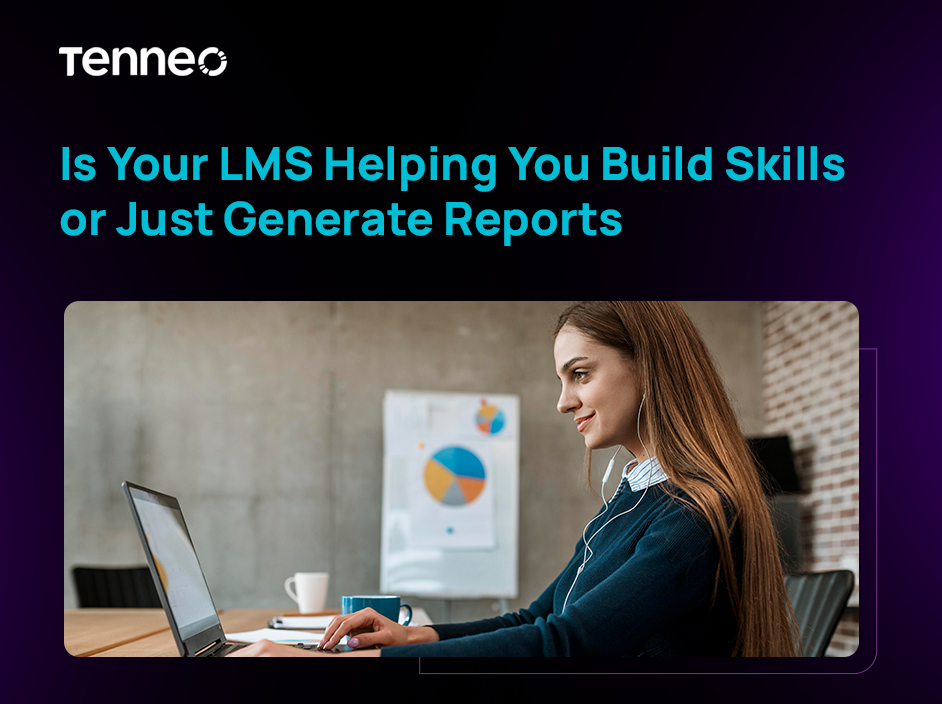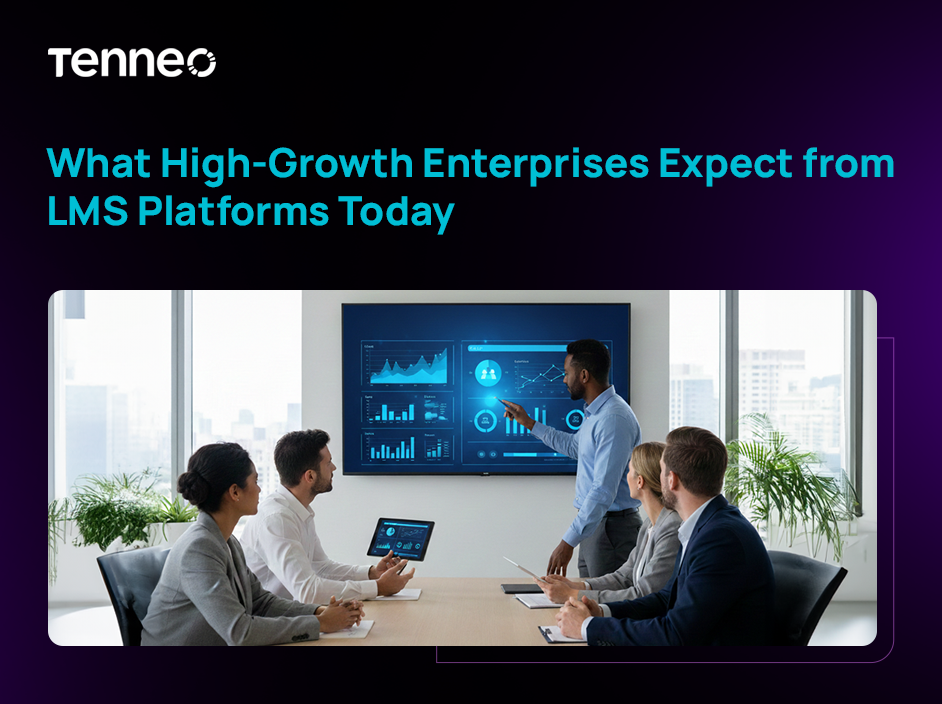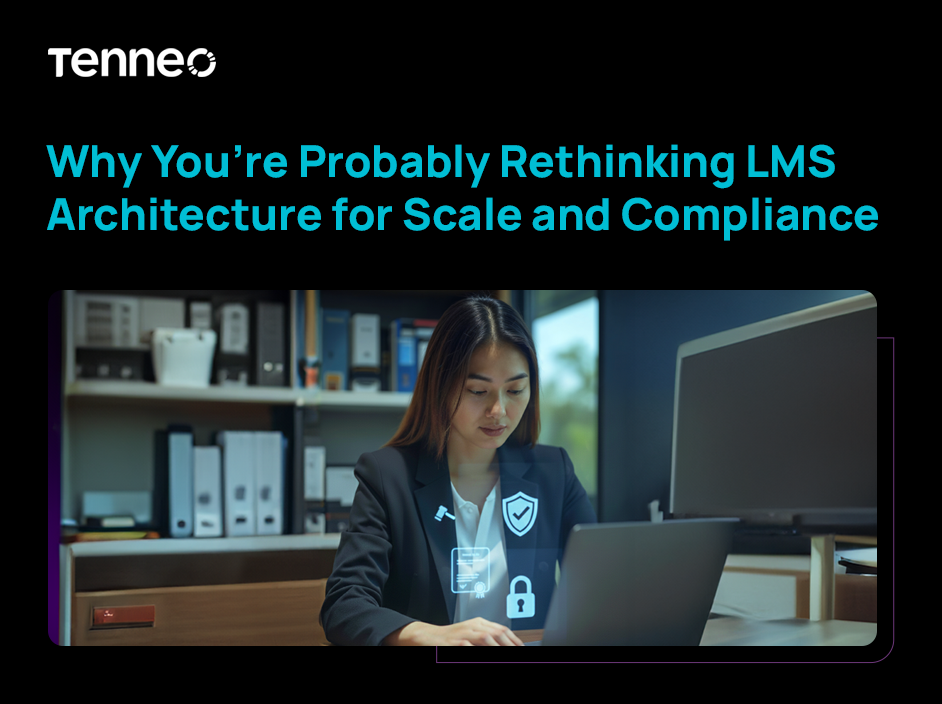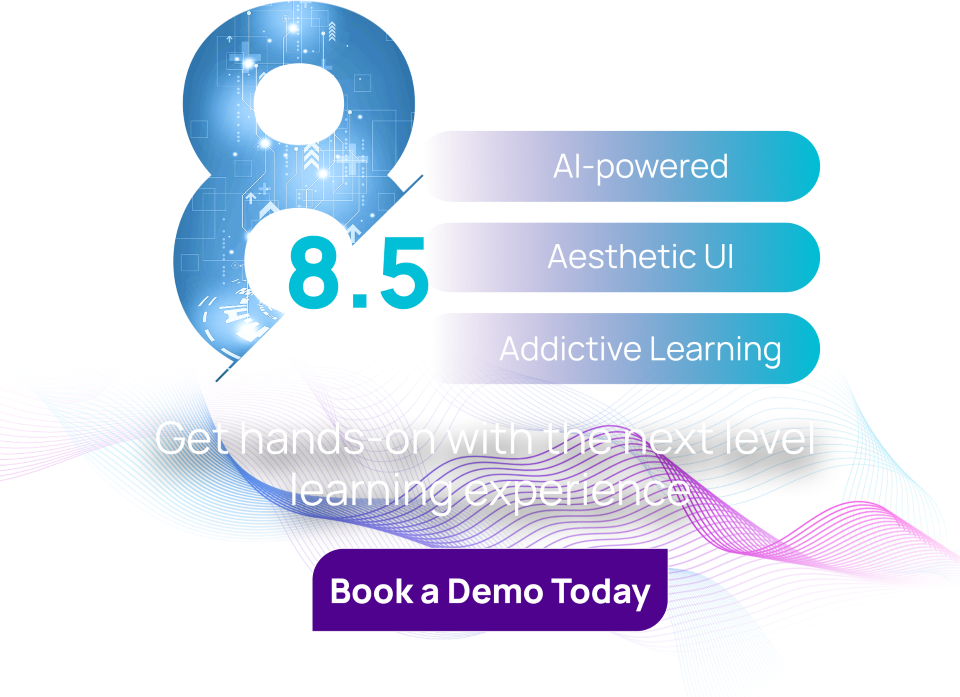
Powering Up Your Workforce: Tenneo’s Partnerships with Top HRMS Providers
July 3, 2024
Top 5 Employee Learning Trends to Look Out For in 2025
September 10, 2024
Powering Up Your Workforce: Tenneo’s Partnerships with Top HRMS Providers
July 3, 2024
Top 5 Employee Learning Trends to Look Out For in 2025
September 10, 2024The Role of an Enterprise LMS in Promoting Sustainable Learning for Non-profits
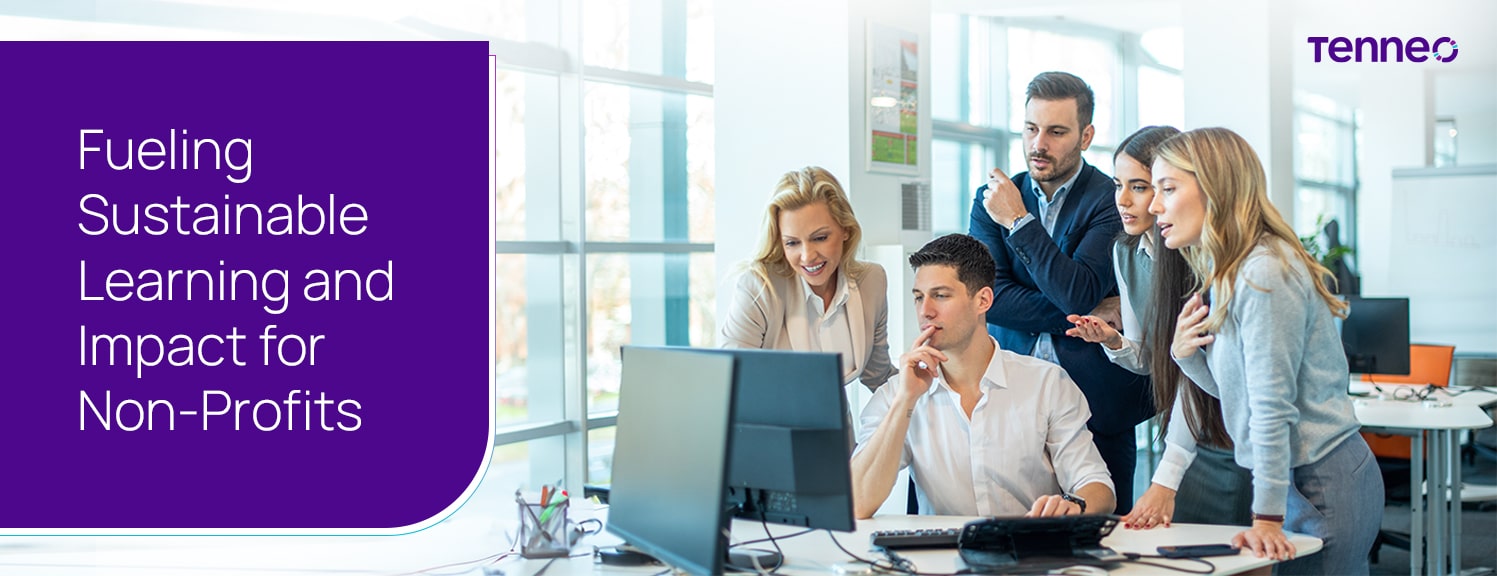
Non-profit organizations are uniquely driven by missions that focus on social impact rather than profit. Their success depends on their ability to educate, empower, and engage their staff and volunteers effectively. As these organizations grow and evolve, the need for a Non-profit LMS that makes learning matter, links learning with performance and supports sustainable learning becomes increasingly crucial.
An Enterprise LMS tailored to the specific needs of non-profits can bridge the gap between limited resources and learning needs to pave the way for seamless success.
How Non-profit Organization’s Learning Needs Are Different
The learning needs of non-profits differ significantly from those of for-profit organizations. Understanding these differences is essential for developing training programs that truly support their mission.
- Mission-Driven Learning (Alignment with Social Impact)
For non-profits, learning programs need to align closely with their mission of driving social change. Unlike corporate training, which often focuses on profitability, non-profits require customizable learning paths that emphasize their specific causes and community goals. An Enterprise LMS for non-profits enables organizations to tailor their learning content to resonate with their social impact objectives. - Capacity Building Over Profit
Non-profits are more concerned with building capacity within their teams than with increasing profit margins. Training programs must, therefore, focus on developing skills that align with the organization's mission. Non-profits need cost-effective LMS options that help them maximize their resources. Their primary focus is on capacity-building without having to spend the majority of their funds on expensive enterprise LMS solutions. - Focus on Volunteer and Staff Training
Given the reliance on volunteers, non-profits must prioritize volunteer training alongside staff development. A Non-profit LMS must be flexible enough to address the diverse learning needs of both groups. This includes providing continuous learning opportunities that keep both volunteers and staff engaged and effective in their roles. - Community Building & Engagement
Community is at the heart of non-profit work, making social learning a critical component of any Enterprise LMS for non-profits. The LMS should facilitate collaboration and knowledge sharing among volunteers, staff, and the communities they serve. This helps in fostering a sense of unity and shared purpose. - More Emphasis on Ethical Compliance
Non-profits often operate in sectors where ethical considerations are paramount. Training must include a strong focus on compliance training to ensure that all activities align with legal and ethical standards. A Non-profit LMS can help organizations stay up-to-date with the latest compliance requirements through targeted training modules.
Learning Challenges for Non-profits
Non-profits face a wide range of challenges that affect their ability to provide effective learning opportunities. Addressing these challenges is essential to ensure sustainable learning and growth.
- Limited Financial Resources
Non-profits often operate with tight budgets, which limits their ability to invest in expensive training solutions. This financial constraint can lead to inadequate training, which can impact its mission. By optimizing costs, non-profits can focus more on learning growth and less on managing their overheads. - High Staff Turnover and Volunteer Dependence
The non-profit sector is characterized by high turnover rates among both staff and volunteers. This constant change in personnel makes it difficult to maintain consistent training and knowledge retention. This can easily disrupt the organization’s operations and diminish its impact. Addressing this lack of continuity is essential for maintaining organizational stability and achieving long-term goals. - Technological Limitations
Many non-profits struggle with outdated technology and limited IT support. This is not ideal for the implementation of effective learning programs. These technological limitations can create access barriers, especially for volunteers and staff who may not be tech-savvy. A Non-profit LMS must be user-friendly and adaptable to these technological constraints. It must ensure that all users, regardless of their digital literacy, can access and benefit from the training. - Cultural Learning Challenges
Non-profits often work in diverse cultural environments where language, customs, and communication styles vary widely. These cultural differences can pose significant challenges to delivering effective training. A Non-profit LMS with multilingual capabilities can help bridge these cultural gaps by providing training that is accessible and relevant to all learners. - Compliance and Certifications
Compliance with legal and ethical standards is non-negotiable for non-profits. Failing to comply with these standards can result in legal penalties, loss of funding, and damage to the organization’s reputation. Non-profits must ensure compliance as it enhances their credibility and ability to attract support from donors and partners.
Role of Tenneo LMS in Sustainable Learning for Non-profits
To overcome the learning challenges and meet their unique learning needs, non-profits require an LMS that is both flexible and robust. Tenneo LMS offers a range of features specifically designed to support the unique goals and constraints of non-profit organizations, helping them to achieve sustainable learning and drive long-term impact.
- Customizable Learning Paths
Tenneo LMS offers customizable learning paths that allow non-profits to tailor training programs to align with their mission-driven objectives. Whether the focus is on volunteer training or staff development, Tenneo LMS can be adapted to meet specific needs. This ensures that every training initiative is aligned with the organization's mission. - Pay-per-use Model
Understanding the financial constraints of non-profits, Tenneo LMS provides a cost-effective LMS solution with a pay-per-use model. This approach ensures that non-profits only pay for the features they need, making it an affordable option that still delivers high-quality training. Tenneo also offers a first-of-its kind LMS Fitment Quiz that helps in pin-pointing the exact LMS needs for an organization. This helps them to choose the LMS that fits their needs without falling for the fancy features and overspending. - Onboarding & Continuous Learning
With high turnover rates and a reliance on volunteers, onboarding and continuous learning are critical for non-profits. Tenneo LMS offers a comprehensive onboarding module that enhances every stage of the process – Pre-onboarding, onboarding, and post-onboarding. It supports continuous learning by providing easy access to training materials, ensuring that new staff and volunteers are quickly brought up to speed. - Compliance & Certificate Management
Tenneo LMS simplifies compliance training by offering a dedicated compliance management module. This ensures that non-profits can easily track who has completed the necessary training and who still needs to be certified. This reduces the risk of non-compliance. By maintaining strict compliance with legal and ethical standards, non-profits can protect their reputation and continue to attract support from donors and partners. - Social Learning Features
Tenneo LMS enhances engagement through social learning features and supports multiple languages to promote cultural training programs. These functionalities foster a collaborative learning environment. Tenneo LMS ensures that training materials are accessible to a diverse, global audience, thereby improving the overall learning experience and inclusivity.
Conclusion
An Enterprise LMS for non-profits provides a powerful platform for sustainable learning by offering features that cater to the unique requirements of these organizations. By leveraging customizable learning paths and a cost-effective LMS model, non-profits can overcome their challenges and continue to make a meaningful impact.
If you are looking to enhance the learning outcomes of your non-profit organization, get in touch with our experts to understand how Tenneo can help you achieve seamless success.

